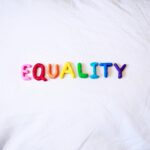Canada is having a quiet crisis that shows up in school hallways, bus stops, and workplace washrooms. When someone can’t afford pads or tampons, they miss class, skip shifts, and stay home from community events. In British Columbia, a major survey by United Way BC found about half of respondents had struggled to buy menstrual products, and one in four said they’d gone through a period without any products at all—barriers that can lead to missed school, work, and social activities. Menstrual equity isn’t a niche topic; it’s about health, dignity, and participation in everyday life.
It’s also about justice. Period poverty hits hardest for people already facing obstacles—youth and students, low‑income families, people with disabilities, trans and non‑binary folks, and those living in remote communities where prices are high and supply can be irregular. At the same time, there’s real momentum. Indigenous‑led efforts are shipping products to remote regions. Youth‑run nonprofits are organizing supply drives and pushing policy. And province‑wide campaigns are proving that when communities pitch in, access improves. For example, United Way BC’s Period Promise collected more than 550,000 products in 2025, moving supplies to frontline agencies across the province.
Below are six Canadian organizations leading the way—and how your support can make a difference.
The Period Purse: Products, Education, and Advocacy
The Period Purse is a registered Canadian charity focused on menstrual equity. What began with one teacher filling a single purse with period products has become a coast‑to‑coast effort that provides free supplies through community partners and pairs that with education and stigma‑busting programs. Their mission is simple and strong: ensure access to period products and end stigma through education and advocacy. If your school or club wants to learn more, they offer free presentations (in English and French) developed with medical professionals and delivered by trained facilitators. Donations help fund product drives, education sessions, and ongoing advocacy for policy change.
Moon Time Connections (True North Aid): Indigenous‑Led Access and Education
http://truenorthaid.ca/project/moon-time-connections/
Started in 2017 in Saskatchewan (originally as Moon Time Sisters) and now grown into four chapters across Saskatchewan, Ontario, Manitoba, and British Columbia, Moon Time Connections is a national Indigenous‑led initiative under True North Aid. They partner with over 120 northern Indigenous communities and have shipped more than 4 million period products—from disposable pads and tampons to cups and period underwear—so people can choose what fits their needs. Beyond shipping, they run facilitator training and “Moon Time 101” sessions to build local knowledge and confidence. Supporting MTC helps address cost, distance, and stigma in remote communities while centring Indigenous leadership.
United Way BC – Period Promise: Province‑Wide Access and Policy
http://uwbc.ca/program/period-promise/
Period Promise works on two fronts: getting free products into community organizations and encouraging workplaces, schools, and governments to stock menstrual products in washrooms—just like toilet paper. Their campaign blends research, collection drives, and a Policy Agreement that organizations can sign to commit to access. In 2025, British Columbians rallied to collect 550,000+ products for people in need, and United Way’s research highlights the scale of the problem: about 51% of survey respondents struggled to purchase products, and 26% had none available at some point. Your donation or product drive fuels a program that’s making access normal, not exceptional.
Help A Girl Out (HAGO): Front‑Line Kits and Reusable Solutions
Based in Brampton and active across Canada, Help A Girl Out runs a Period Product Support Program that provides 1–3 months of menstrual and hygiene supplies to people facing period poverty—through shelters, schools, and community partners. They also lead The Reusables Project, hosting sewing workshops and distributing reusable pads for a more sustainable long‑term option, and they deliver uterine health and period‑literacy workshops in schools and community spaces. Donations support product kits and education; volunteers can help with packing, outreach, and events. If you’re a student, HAGO’s toolkit makes it straightforward to organize a campus or club drive.
Bleed the North: Youth‑Led Action and Education in Ontario
Bleed the North is a federally registered, youth‑led nonprofit committed to ending period poverty and stigma across Ontario. They assemble and deliver period packs, create educational campaigns, and advocate for menstrual legislation to make access more consistent and fair. The team began during the early COVID period and has grown into a province‑wide network that pairs direct support with youth leadership. If you want a model for how student initiative can scale, this is it. Your support helps get packs to shelters and individuals while building public understanding—and pressure for change.
Days for Girls Canada: Washable Kits and Volunteer Power
Days for Girls Canada is the Canadian affiliate of a global movement that sews washable, reusable menstrual kits and provides health education. Volunteers across Canada power the work—raising funds, sewing, and distributing kits locally and internationally through Chapters and Teams. While much of their impact reaches people worldwide, Canadian teams also respond to local needs (for example, distributing kits through food banks). If you like hands‑on work with tangible results, DfG offers a clear path to contribute time and skills.
Where Do We Go From Here?
System‑level change matters, but individual actions add up—especially when we act together. Pick one step and do it this week:
- Donate to a frontline group. A small monthly gift helps organizations plan product orders and education sessions. Great options: The Period Purse, Help A Girl Out, or Bleed the North.
- Run a product drive at school. Collect unopened pads, tampons, and liners. Ask your principal for permission, set up bins in washrooms and the library, and partner with a local charity to distribute donations (Period Promise’s toolkit has planning ideas).
- Book a free education session to reduce stigma. The Period Purse offers inclusive presentations for Grades 5–12 and adults—available virtually or in person in select areas.
- Support Indigenous‑led solutions. Follow Moon Time Connections’ chapter donation drives or host a school fundraiser to help cover shipping to remote communities.
- Advocate for access in public washrooms. Encourage your school board, campus, or local council to provide free menstrual products in washrooms—some municipalities have already moved in this direction after community advocacy. (For example, The Period Purse has supported municipal policy wins.)
Small steps, repeated, build momentum.
Final Thoughts
It’s easy to feel like one person can’t move the needle—but in this case, you can. Product drives keep classmates in class. Education sessions replace awkwardness with facts and empathy. Policy changes make access routine instead of rare. The charities above are already doing the work: getting supplies where they’re needed, teaching with respect, and pushing for rules that treat menstrual products like the essentials they are. You don’t have to do everything at once. Start with one action—donate, organize a drive, book a workshop, or send a respectful email to a decision‑maker—and let it grow from there. We don’t need perfection. We need participation. The future we want is built by the choices we make today.





















